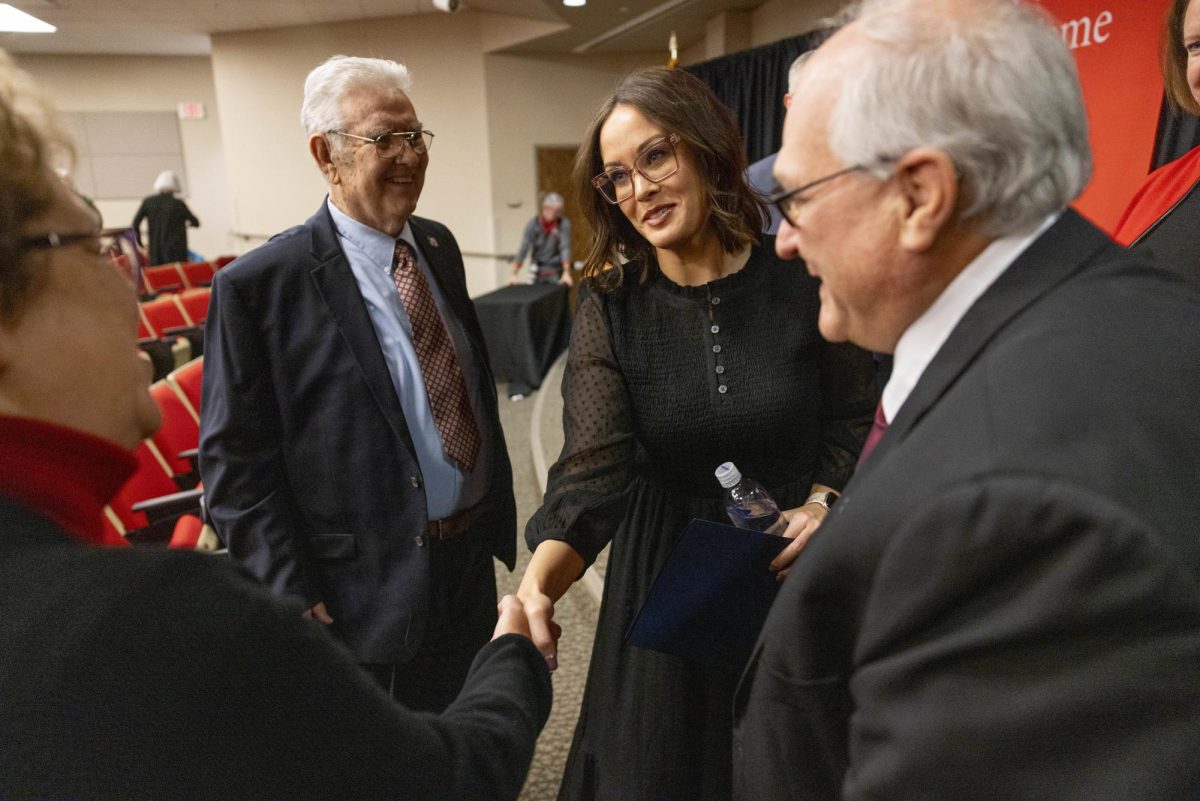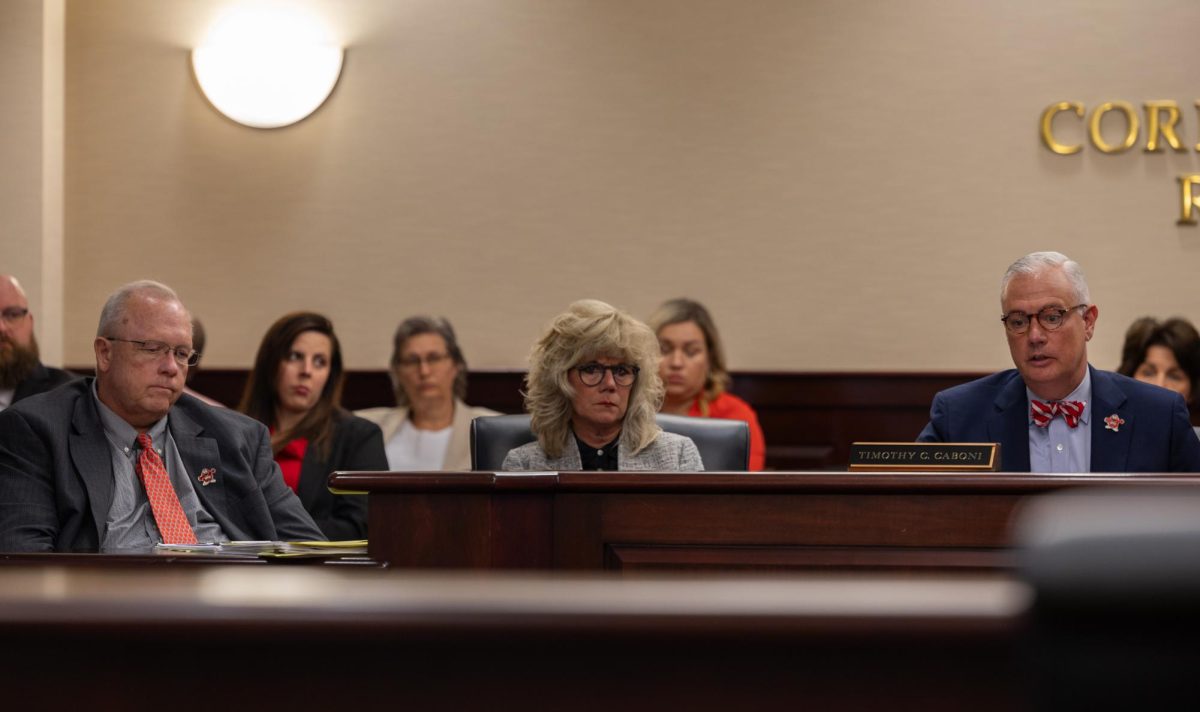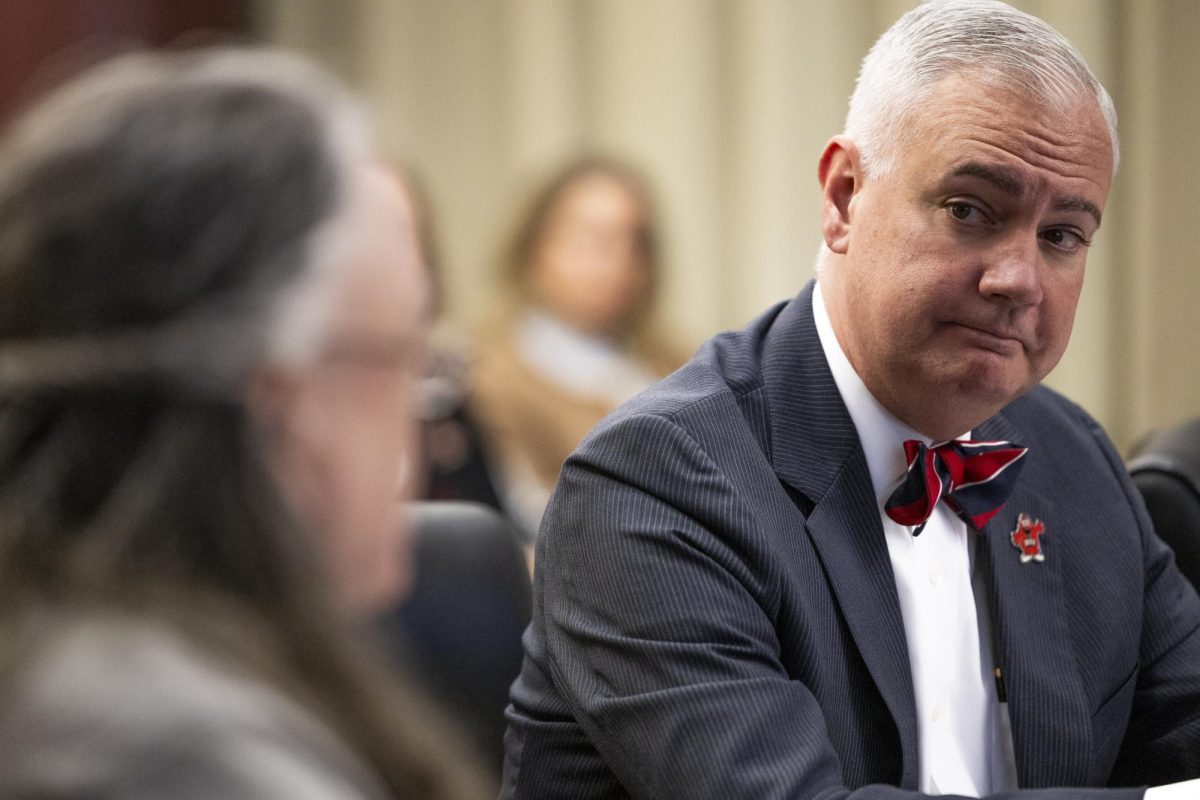A Warren County Circuit Court judge is working to close a longstanding lawsuit between Western Kentucky University and the College Heights Herald by directing both sides on Thursday to write proposed orders that would settle the case.
At the center of the dispute remaining between WKU and its student newspaper is the level of redactions, or omitted information, in cases in which WKU investigated allegations of sexual misconduct brought by students against faculty and staff members.
Each party has 10 days to file an appealable order on whether the university must provide the names and identifying information of people who were accused of misconduct in cases that the university found were “unsubstantiated” – or investigations where no violations were found.
In the legal briefing written by Rick Adams, an attorney for the Herald at the Louisville law firm of firm of Kaplan Johnson Abate & Bird LLP, the Herald argued that WKU continues to violate the Kentucky Open Records Act by not disclosing the information in the 14 investigations it deemed “unsubstantiated.”
The university insists that it can withhold records – or portions of records – that contain names of persons who were subjects of unsubstantiated investigations.
The lawsuit stretched back to a November 2016 request by the Herald to inspect records of all cases in a five-year period in which students accused faculty or staff of sexual misconduct. That request was made of all eight public universities in Kentucky.
Six of the universities provided the documents, but WKU and Kentucky State refused. The Herald appealed WKU’s refusal to the Kentucky attorney general’s office, which ruled that WKU was in violation of the public records act, ordering WKU to produce the documents.
Instead, WKU sued the Herald in February 2017.
In the same time frame, the University of Kentucky sued the Kentucky Kernel student newspaper over similar records relating to allegations of misconduct by a single UK professor. While WKU’s case stalled in Warren Circuit Court under Judge Steve Wilson, the UK case progressed and ultimately was decided in favor of the Kernel in 2021 by the Kentucky Supreme Court.
As a result of the UK ruling, WKU in the summer of 2021 produced records of 20 cases, which were heavily redacted – excessively so, the Herald argued.
Little changed until earlier this month, when WKU released records from six cases that the university said were substantiated. With these records, redactions were more limited and WKU provided the legal reasoning for each redaction, as is required by the public records act. The Herald has maintained from the outset that it does not dispute redactions to maintain the privacy of the students involved.
Wilson, the judge originally handling the WKU case, retired in 2022 and was replaced by Judge Christopher Cohron, who heard the arguments on Thursday.
At the center of the remaining dispute between the Herald and WKU is whether the law allows the identities of faculty and staff accused of misconduct to be hidden in cases that were not substantiated by the university’s investigations.
“There is no legal basis to make that distinction,” Adams said in court Thursday.
In the Kernel’s case, their lead attorney Thomas Miller said in court Thursday that “you could certainly strongly argue that the allegations were unsubstantiated.”
“This is a guy that was paid by UK, just like Western is paying these professors,” Miller said. “The students have the right to know whether they’re in danger, possibly in being around these people.”
Cohorn said that from his initial read, there is not “great distinction” between the unsubstantiated and substantiated investigations.
He said that it is time for the six year lawsuit to “come to a close.”
The Herald will release a follow-up story once the orders have been filed.
Engagement Editor Debra Murray can be reached at [email protected]. Follow her on X @debramurrayy.








